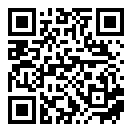Pages:
59-76
Receive Date: 2026/02/13
Accept Date: 2026/02/13
Abstract:
It can be claimed that morality is the main pillar and a common foundation for all human beings’ nature. Therefore, it is considered a common language for dialogue and comparison of capacities in different religions, which is studied under the name of moral system. This moral system includes some components and elements, of which ethical codes are the most important. The ethical code of Ahimsa is one of the most important principles in the moral system of Buddhism. Based on this principle, people should avoid harming living creatures, and if this principle is not observed, they will be afflicted with bad karma, which, according to the belief in reincarnation, will have a negative effect in their next lives. It can be argued that the most important effect of this ethical code is peace in the world, which is known as a principle for all human beings worldwide. Using descriptive-analytical method as well as drawing on religious sources, this article sheds light on the ethical code of Ahimsa and explains its components, conflicts and solutions.
چکیده و کلیدواژه فارسی (Persian)
Title :تحلیل کد اخلاقی اهیمسا در آیین بودا
Abstract:
می توان ادعا کرد که اخلاق رکنی اساسی و پایهی مشترک فطرت تمام انسان هاست؛ ازاین رو زبان مشترکی برای گفت وگو و مقایسه بین ظرفیت های مختلف ادیان محسوب می شود که تحت عنوان نظام اخلاقی مورد بررسی قرار می گیرد. این نظام اخلاقی دارای اجزا و عناصری است که کدهای اخلاقی اصلی ترین آن است. کد اخلاقی اهیمسا یکی از مهم ترین دستورها در نظام اخلاقی آیین بوداست. طبق این اصل، انسان باید از آسیب رساندن به موجودات جاندار اجتناب کند و اگر چنین چیزی محقق نشود، گرفتار کرمهی بدی خواهد شد که طبق اعتقاد به تناسخ، در زندگی بعدی او اثر منفی خواهد داشت. می توان گفت که مهم ترین اثر این کد اخلاقی، صلح در جهان است که به عنوان یک اصل در جهان برای انسان ها شناخته می شود. در این نوشتار به روش توصیفی ـ تحلیلی کد اخلاقی اهیمسا با بهره گیری از منابع دینی آنان تبیین شده، در ادامه لوازم و تعارض و راه حل های آن بیان می گردد.
References:
- آرمسترانگ، کَرِن، 1387، بودا، ترجمة نسترن پاشايي، تهران، فراروان.
- پاشايي، عسگري، 1393، چرخ و نيلوفر، قم، اديان.
- پانيپتي، نظام، 1360، جوگ باسشت، در فلسفه و عرفان هند، ترجمة سيدمحمدرضا جلالي نایيني و ن. س. شو کلا استاد دانشگاه دهلي، بيجا، شرکت افست سهامي عام.
- تاپار، روميلا، 1387، تاريخ هند، ترجمة همايون صنعتيزاده، قم، اديان.
- جلالي نایيني، سيدمحمدرضا، 1375، هند در يک نگاه، تهران، شيرازه.
- حسيني قلعهبهمن، سيداکبر، 1396، «تحليل کد اخلاقي محبت در آیين کاتوليک»، اخلاقپژوهي، ش 3، ص 91-110.
- الدنبرگ، هرمان، 1373، فروغ خاور: زندگي، آیين و رهبانيت بودا، ترجمة بدرالدين کتابي، چ سوم، تهران، اقبال.
- سادهاتيسا، هـ. .، 1386، بودا و انديشههاي او، ترجمة محمدتقي بهرامي حران، چ دوم، تهران، جامي.
- سوريا، داس، 1379، بيداري بوداي درون، ترجمة مليحه کرباسيان، تهران، مرداد.
- سوماناسيري، گاليله، 1383، آموزههاي بودا و کنفوسيوس، ترجمة اکبر برخورداري، تهران، الهدي.
- شايگان، داريوش، 1389، اديان و مکتبهاي فلسفي هند، چ هفتم، تهران، اميرکبير.
- قرايي، فياض، 1385، اديان هند، مشهد، دانشگاه فردوسي.
- کريشنا، رادا، بيتا، راه حق، ترجمة رضا علوي، تهران، سروش.
- گواهي، عبدالرحيم، 1390، فرهنگ توصيفي اديان، تهران، پژوهشگاه علوم انساني و مطالعات فرهنگي.
- منسکي، ورنر و ديگران، 1393، اخلاق در شش دين جهان، ترجمة محمدحسين وقار، چ سوم، تهران، اطلاعات.
- موحديان عطار، علي و محمدعلي رستميان، 1386، درسنامه اديان شرقي، قم، کتاب طه.
- ناردو، دان، 1388، هند باستان، ترجمة مهدي حقيقتخواه، تهران، ققنوس.
- نوری کوهبنانی، مجتبی، 1399، «شرایط عامل اخلاقی از منظر امامیه و آیین کاتولیک»، معرفت، ش 9، ص 67ـ78.
- هينلز، جان راسل، 1385، فرهنگ اديان جهان، ترجمة ع پاشايي، قم، مرکز مطالعات و تحقيقات اديان و مذاهب.
- ياسپرس، کارل، 1364، بودا، ترجمة اسدالله مبشري، چ دوم، بيجا، نقره.
- Humphreys, Christmas, 1987, THE Wisdom of Buddhism, London, Curzon Press.
- Prebish, Charles S & Damien Keown, 2006, Indroducing Buddhism, London, Routledge.
- Saddhatissa, H., 1976, The Life of the Buddha, London, Unwin Paperbacks.
- Snelling, John, 1991, The Elements of Buddhism, Massachusetts, Element.
Cite this article:
RIS
Mendeley
BibTeX
APA
MLA
HARVARD
VANCOUVER
APA | MLA | HARVARD | VANCOUVER
Nouri, Mojtaba, Hosseini Qal’eh Bahman , Seyed akbar.(2026) An Analysis of the Ethical Code of Ahimsa in Buddhism. Ma`rifat-e Adyan, 14(3), 59-76
APA | MLA | HARVARD | VANCOUVER
Mojtaba Nouri; Seyed akbar Hosseini Qal’eh Bahman ."An Analysis of the Ethical Code of Ahimsa in Buddhism". Ma`rifat-e Adyan, 14, 3, 2026, 59-76
APA | MLA | HARVARD | VANCOUVER
Nouri, M, Hosseini Qal’eh Bahman , S.(2026) 'An Analysis of the Ethical Code of Ahimsa in Buddhism', Ma`rifat-e Adyan, 14(3), pp. 59-76
APA | MLA | HARVARD | VANCOUVER
Nouri, M, Hosseini Qal’eh Bahman , S. An Analysis of the Ethical Code of Ahimsa in Buddhism. Ma`rifat-e Adyan, 2026; 14(3): 59-76
 / PhD Student of Religions and Mysticism, the Imam Khomeini Institute for Education and Research / mojtaba_nouri_kouhbanani@iran.ir
/ PhD Student of Religions and Mysticism, the Imam Khomeini Institute for Education and Research / mojtaba_nouri_kouhbanani@iran.ir / Associate Professor at the Department of Religions, the Imam Khomeini Institute for Education and Research / ghalebahman@iki.ac.ir
/ Associate Professor at the Department of Religions, the Imam Khomeini Institute for Education and Research / ghalebahman@iki.ac.ir



